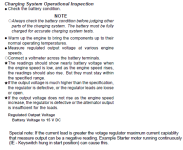Remember back in high school, in physics you were taught about GALVANIC CELLS
Well in the real world a galvanic cell creates some thing called galvanic corrosion and it is why they bold zinc or aluminium blocks to the sides of steel ships .
IT is why galvanise iron is called Galvanised iron & not zinc dipped steel like we use Tin Plate to describe steel covered by tin.
It is why your steel hot water tank has that aluminium-zinc alloy anode that you are supposed to replaces every 6 to 10 years if you want your tank to last for 50 + years
And also why electricians install them where there is not enough space to do it so you will be forced to buy a new system every 5 years because the tank has rusted through .
So for those of you who were asleep during high school science , or went to a school where they taught creationism in place of science .
Whenever you have 2 metals that are different touching each other and a path for electrons to flow between them other than the contact surfaces then you have a GALVANIC CELL and the net result will be GALVANIC CORROSION .
In galvanic corrosion the metal with the highest energy of creation will oxidize in an attempt to go to a lower energy state ( first law of thermodynamics ) thus will crumble away to nothing.
However there are some things that rock the boat and one of them is the permeability of the oxide coating , yes permeability affects more things than fuel lines .
So in the case of Hammers stainless bolts, they start to corrode, but the oxide coating is very tough and very dense and has a very low permeability which is why stainless things remain bright & shinny for a very long time but eventually go dull .
Now how does this affect your battery terminal ?
Well you have a galvanic smorgasbord there , where you have from the nut to the bolt , steel bolt, steel nut ,steel washer, lead terminal, tin, copper, tin,on the wire terminal steel washer & steel bolt
So all that needs is enough moisture for a conductive path and you have word war III happening on top of your battery
Add oxygen from the air and it is on for young and old
I could complicate it even more by stating that you get galvanic cells in a single metal where 2 or more parts are at different energy levels ( call it stress if that makes it easier to visualise ) so at the head of a roll formed bolt you have a cell between the unthreaded portion of the shank and the upset forged head ( actually there are several in the head ) plus another between the rolled thread & the unthreaded section of the shank, the washer has 2 galvanic cells between the inner & outer edges and the middle where no deformation happened , a folded tin plated copper cable terminal has cells both between the tin & copper + internally here the hole is punched where the sides are rolled around and the edges where it was sheared out of the sheet , then because it is a different alloy to the cable itself between it and the cable plus internally at the crimp
The lead battery terminal is cast so has no galvanic potential other than between everything else that is in contact with it
If you touch your corroded terminal you will feel that it is sightly damp and it is that dampness that is creating the cells.
Thus you need to prevent the whole shooting match getting damp
Hence, terminal grease, terminal spray, vaseline or my favourite liquid electrical tape
Those felt washers adsorb moisture and prevent surface cell between the + & - battery posts created by moisture on the top of the battery .
IF your eyes have not glazed over yet you might remember lead plated battery bolts at one time which work if and only if they are done up & never undone as tightening them scratches off the soft lead coating however the pig ignorant have banned these bolts because lead as we all know is the devils metal and just looking at it will cause your testicles to fall off , your children to grow 2 heads and your women folk to become infertile then die .
Now what I do
I use 1.5" coach bolts with wing nuts some times I have to grind down the wings a bit because battery posts are getting shorter .
First I do them up very tight to turn the round hole in the battery post square .
Then undo the nut, slip the cable over it, tighten the nut then paint the whole shooting match over with Liquid Electrical Tape .
This has to be complete top sides & bottom.
Having done this air & moisture are now excluded so the galvanic cells can not be completed, thus no corrosion.
The big trick is to leave 1/2" of the end of the bolt unpainted so voltage readings can be taken or there is a place to connect jumper leads to if & when needed .
Because the liquid electrical tape dries to a plastic finish, no washers, spring or flat are needed and the nut can not vibrate loose while the coating is soft enough that you can easily unscrew the wing nut if needed .
Once done up like this they are never touched again and there are a lot of my customers running the batteries that I treated this way up to 13 years ago


